‘Translated […] with an addition of divers other poems’.
Translation as poetic practice
in mid seventeenth-century England
Content within these narrow walls to dwell,
Yet canst so far that point of flesh out-swell
That thine Intelligence extends through all
Languages, that we Europæan call.
– William Hammond to Thomas Stanley in Poems and Translations (1647)
Tiago Sousa Garcia
Newcastle University
tiago.sousa-garcia@newcastle.com
@tiagosousagarci
[early modern translations are] original works by authors who happen to be translating
Warren Boutcher, ‘The Renaissance’, in The Oxford Guide to Literature in English Translation, ed. Peter France (Oxford: Oxford University Press, 2000), 46
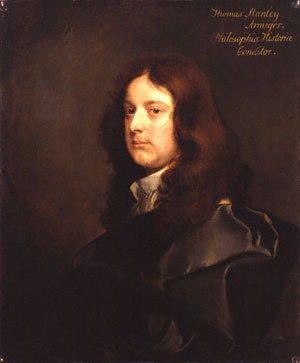
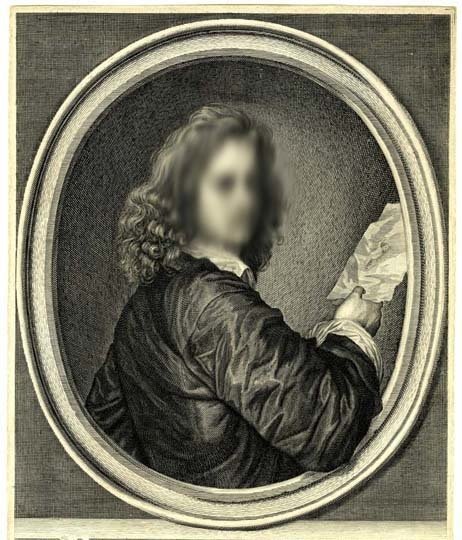
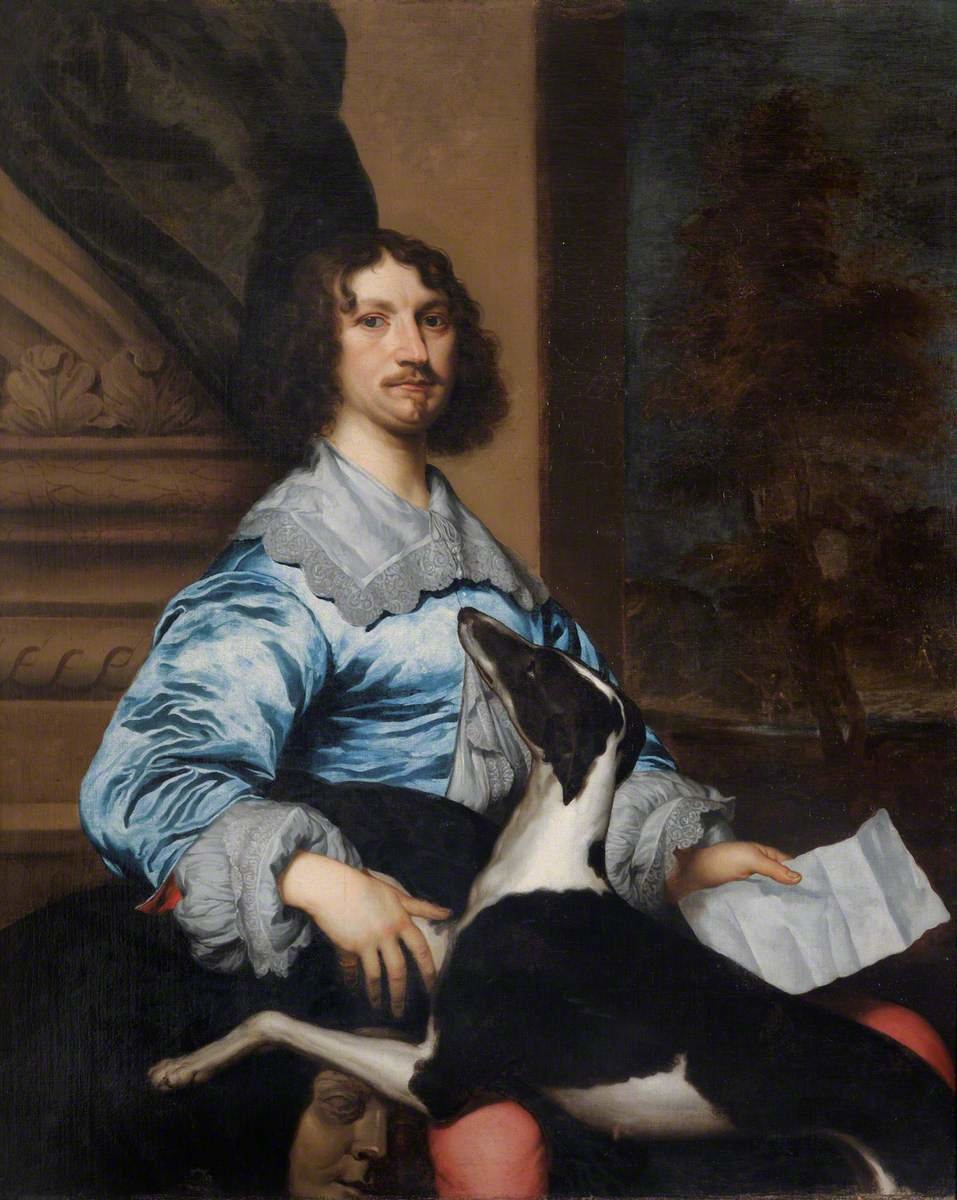
Thomas Stanley
NOT
Edward Sherburne
Richard Fanshawe
Thomas Stanley
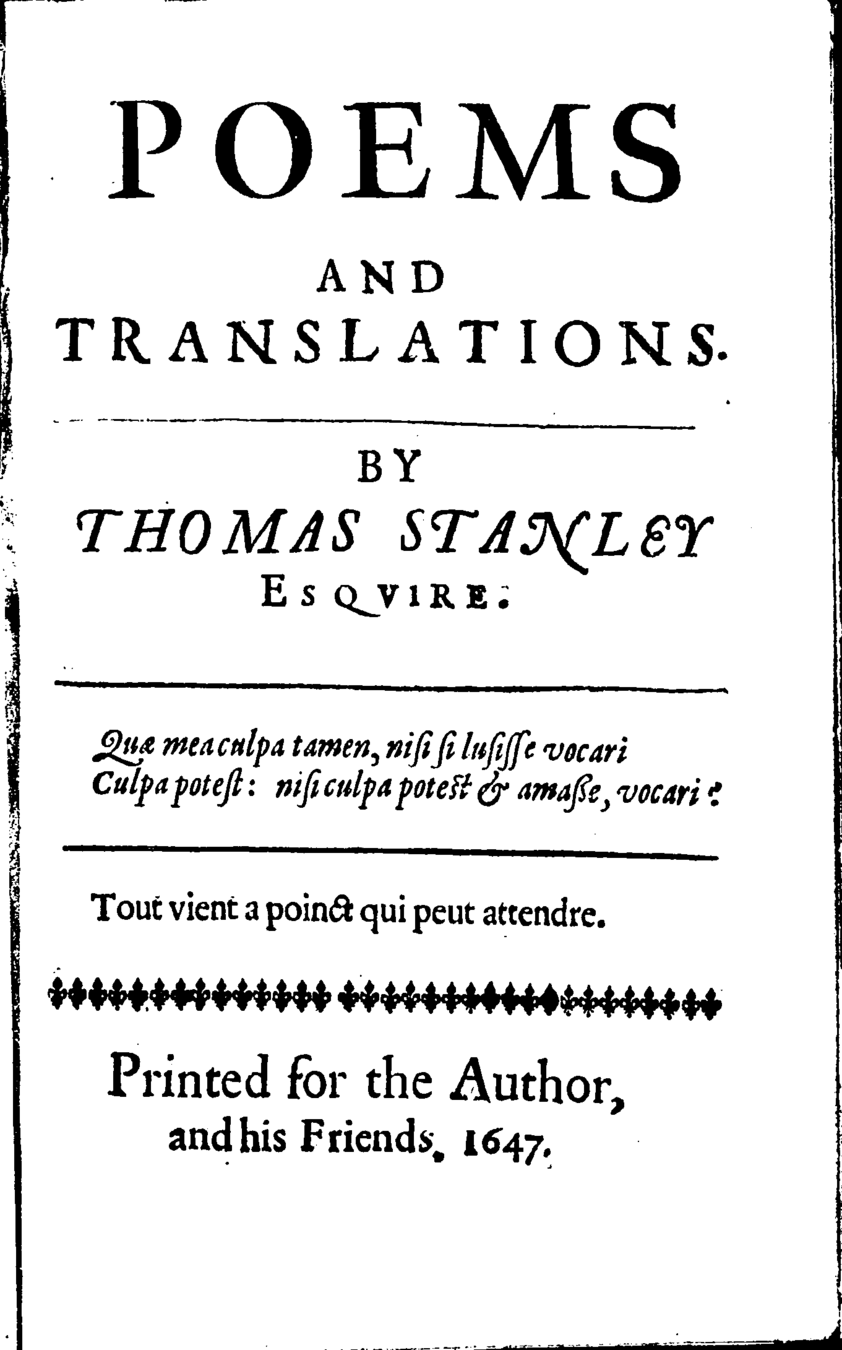
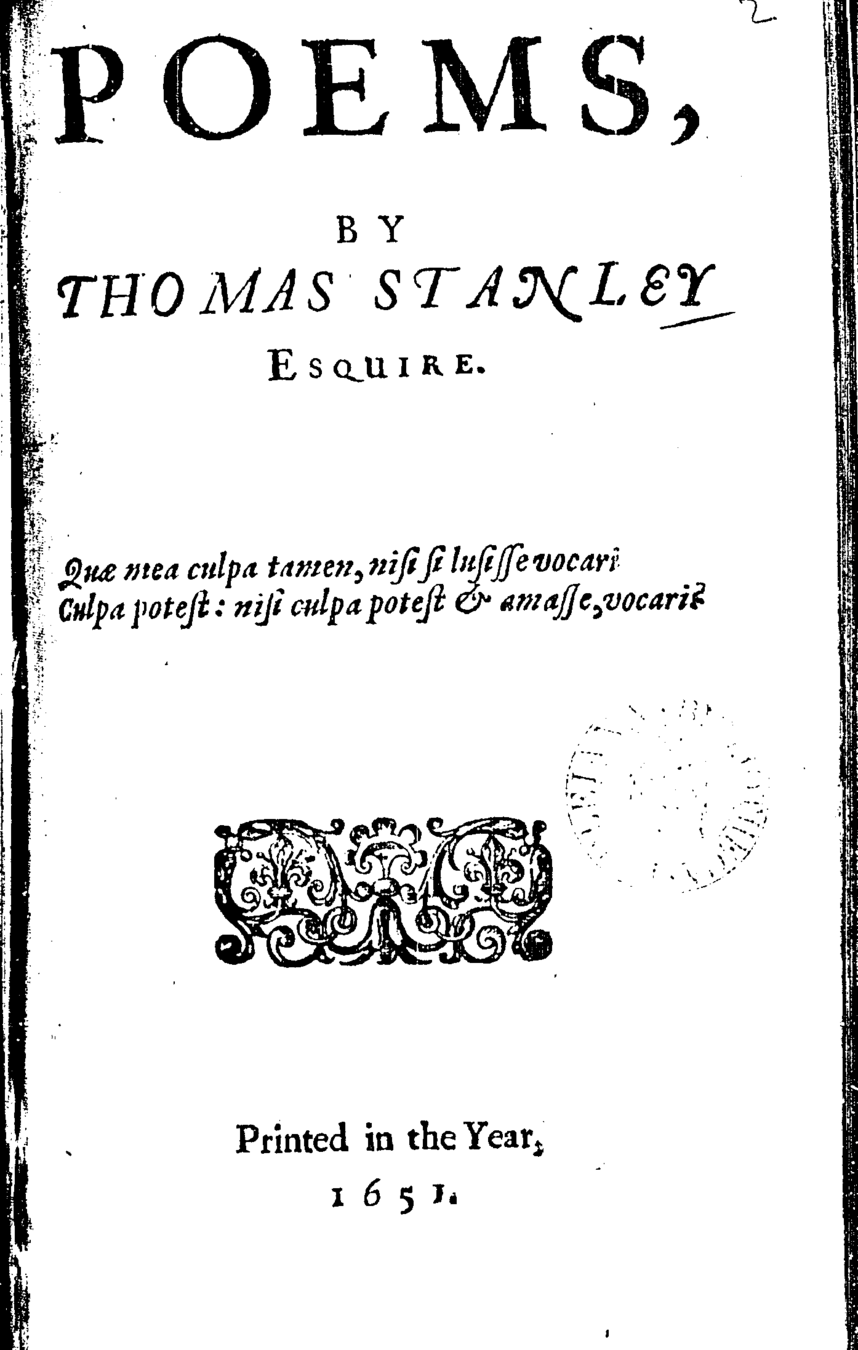
Thomas Stanley
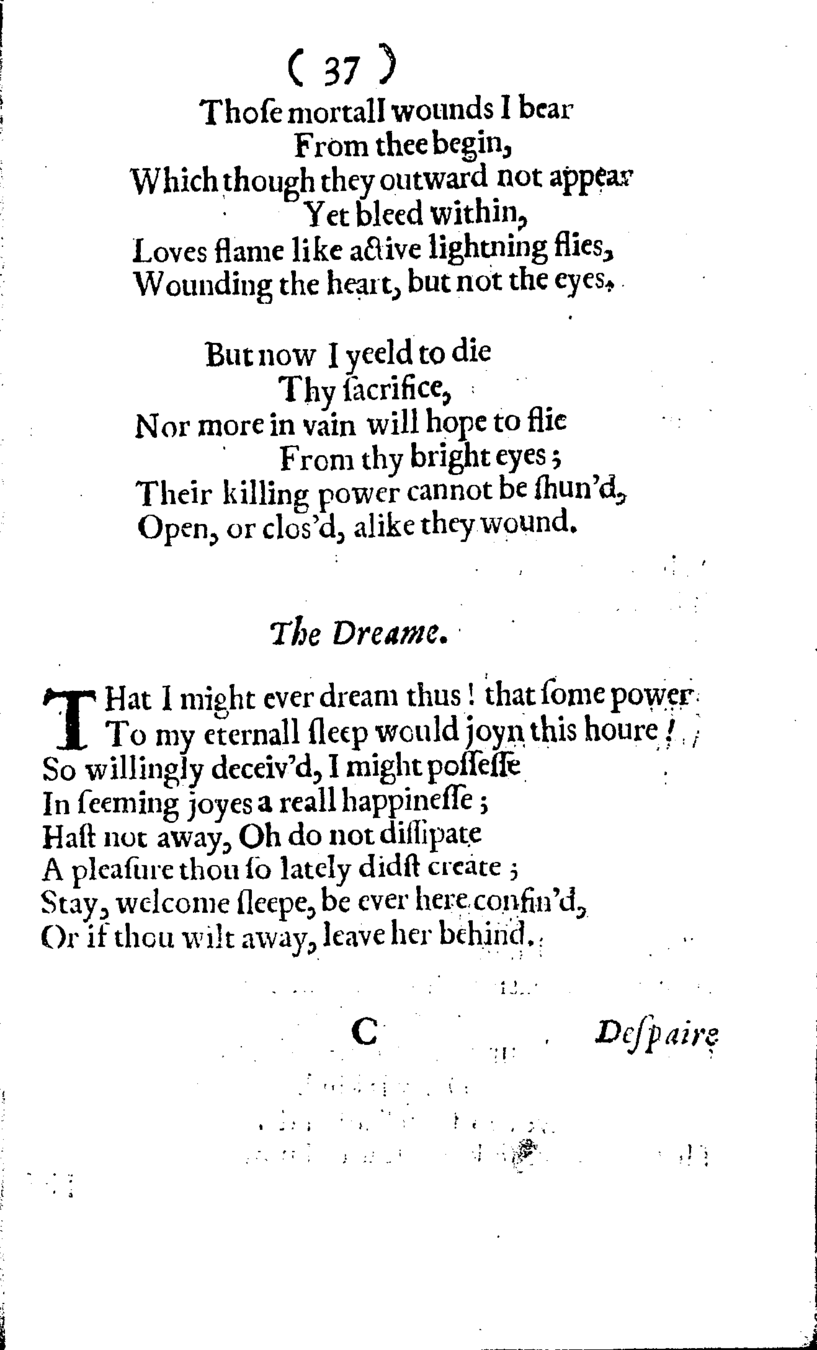
1647
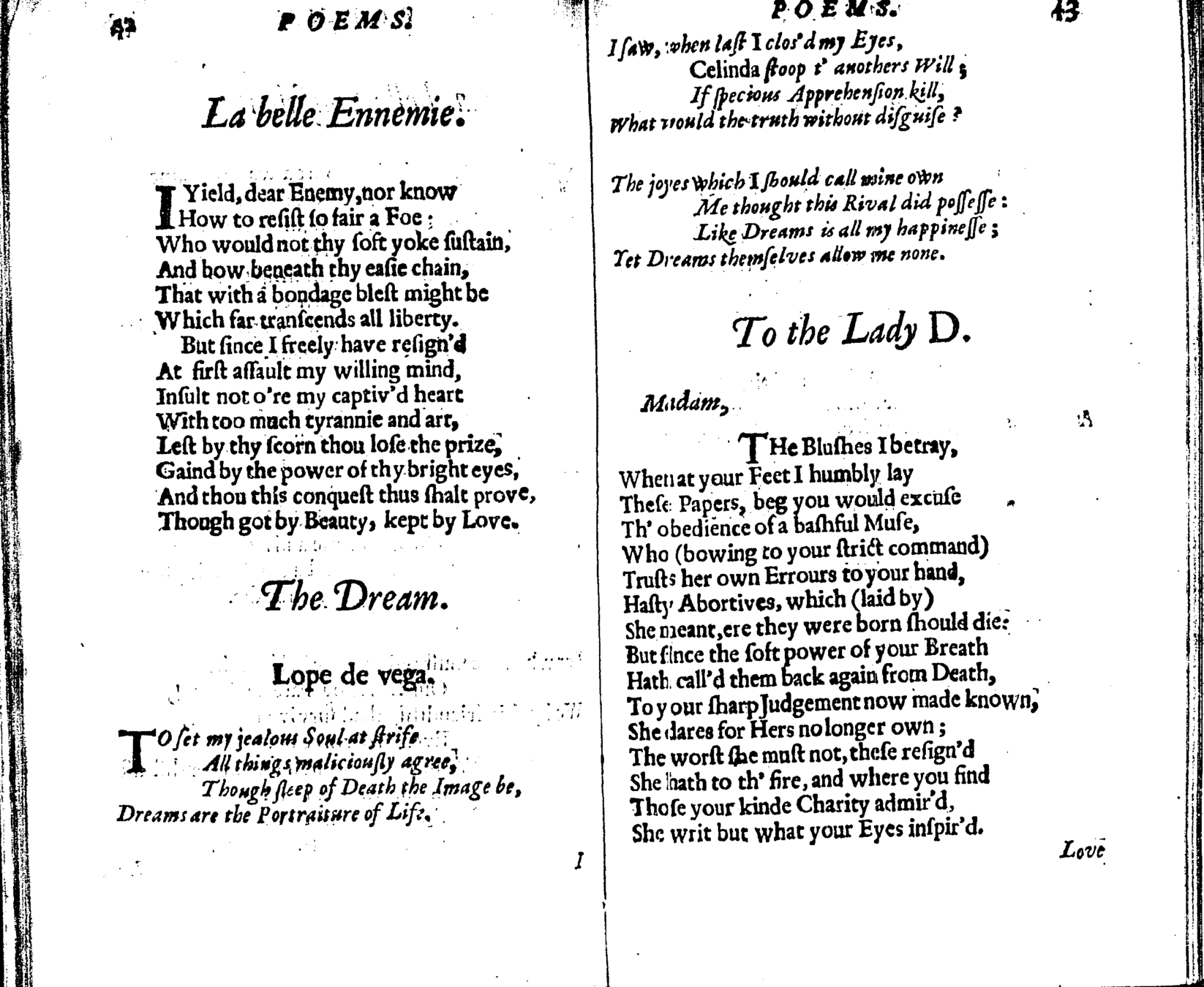
1651
Thomas Stanley
To set my jealous Soul at strife
All things maliciously agree,
Though sleep of Death the Image be,
Dreams are the Portraiture of Life.
I saw, when last I clos’d my Eyes,
Celinda stoop t’anothers Will;
If specious Apprehension kill,
What would the truth without disguise?
The joys which I should call mine own
Me thought this Rival did possesse:
Like Dreams is all my happinesse;
Yet Dreams themselves allow me none.
Stanley, 1651
O Burlas de Amor ingrato,
Que todas soys de una suerte,
Sueño imagen de la muerte,
Y de la vida retrato.
Que importa que se desvelen,
Los interiors sentidos,
Si los de afuera dormidos
Sufrir sus engaños suelen,
Yo vi sin ojos mi dueño,
En agena voluntad,
Que pudiera la verdad,
Si pudo matarme el sueño?
Donde dormir presumi,
Descansè para mi daño,
Que el sueño de amor engaño,
Me ha desengañado a mi.
Amorosas fantasias
Sueñan alegres historias:
Yo sola en agenas glorias
Contemplo desdichas mias.
Porque con ser mis contentos
Sueño ligero y fingido,
Aun en sueños no he tenido
Fingidos contentamientos.
O triste imaginacion,
Para el mal siempre despierta,
Quien dirà, viendoos tan cierta
Que los sueños, sueños son?
Que sino son desvarios,
Ver à Anfriso en otros bracos,
Antes de tales abracos
Se buelvan laurel los mios.
Mas como Dasnes sere,
Si para Clicie naci,
Pues de donde me perdi,
Iamas los ojos quitè.
Ya soys sueño, y fuistes viento:
Medrais esperanca mia,
No os llevara si folia,
Que aora dormis de assiento.
Si este desengaño advierte
A los sentidos en calma,
Que tengo dormida el alma;
Que importa que yo despierte.
Pues quanto mas mire en mi
El gran sujeto que amè,
Mas afligida estarè
Por lo poco que perdi.
Y quando huviera algun medio,
Que fuera en mi daño firme,
Y allega el arrepentirme
Tan tarde como el remedio.
Los hados dizen que soy
De Anfriso por los cabellos.
Mas yo les respondo a ellos,
Que por mi passo me voy.
Que aunque sea ingrate amante
Para el alma que le di,
Viuirà tan firme en mi,
Como letras en diamante.
Lope de Vega, 1598
Thomas Stanley
To set my jealous Soul at strife
All things maliciously agree,
Though sleep of Death the Image be,
Dreams are the Portraiture of Life.
I saw, when last I clos’d my Eyes,
Celinda stoop t’anothers Will;
If specious Apprehension kill,
What would the truth without disguise?
The joys which I should call mine own
Me thought this Rival did possesse:
Like Dreams is all my happinesse;
Yet Dreams themselves allow me none.
Stanley, 1651
O Burlas de Amor ingrato,
Que todas soys de una suerte,
Sueño imagen de la muerte,
Y de la vida retrato.
Que importa que se desvelen,
Los interiors sentidos,
Si los de afuera dormidos
Sufrir sus engaños suelen,
Yo vi sin ojos mi dueño,
En agena voluntad,
Que pudiera la verdad,
Si pudo matarme el sueño?
Donde dormir presumi,
Descansè para mi daño,
Que el sueño de amor engaño,
Me ha desengañado a mi.
Amorosas fantasias
Sueñan alegres historias:
Yo sola en agenas glorias
Contemplo desdichas mias.
Porque con ser mis contentos
Sueño ligero y fingido,
Aun en sueños no he tenido
Fingidos contentamientos.
O triste imaginacion,
Para el mal siempre despierta,
Quien dirà, viendoos tan cierta
Que los sueños, sueños son?
Que sino son desvarios,
Ver à Anfriso en otros bracos,
Antes de tales abracos
Se buelvan laurel los mios.
Mas como Dasnes sere,
Si para Clicie naci,
Pues de donde me perdi,
Iamas los ojos quitè.
Ya soys sueño, y fuistes viento:
Medrais esperanca mia,
No os llevara si folia,
Que aora dormis de assiento.
Si este desengaño advierte
A los sentidos en calma,
Que tengo dormida el alma;
Que importa que yo despierte.
Pues quanto mas mire en mi
El gran sujeto que amè,
Mas afligida estarè
Por lo poco que perdi.
Y quando huviera algun medio,
Que fuera en mi daño firme,
Y allega el arrepentirme
Tan tarde como el remedio.
Los hados dizen que soy
De Anfriso por los cabellos.
Mas yo les respondo a ellos,
Que por mi passo me voy.
Que aunque sea ingrate amante
Para el alma que le di,
Viuirà tan firme en mi,
Como letras en diamante.
Lope de Vega, 1598
Thomas Stanley

1647

1651
Edward Sherburne
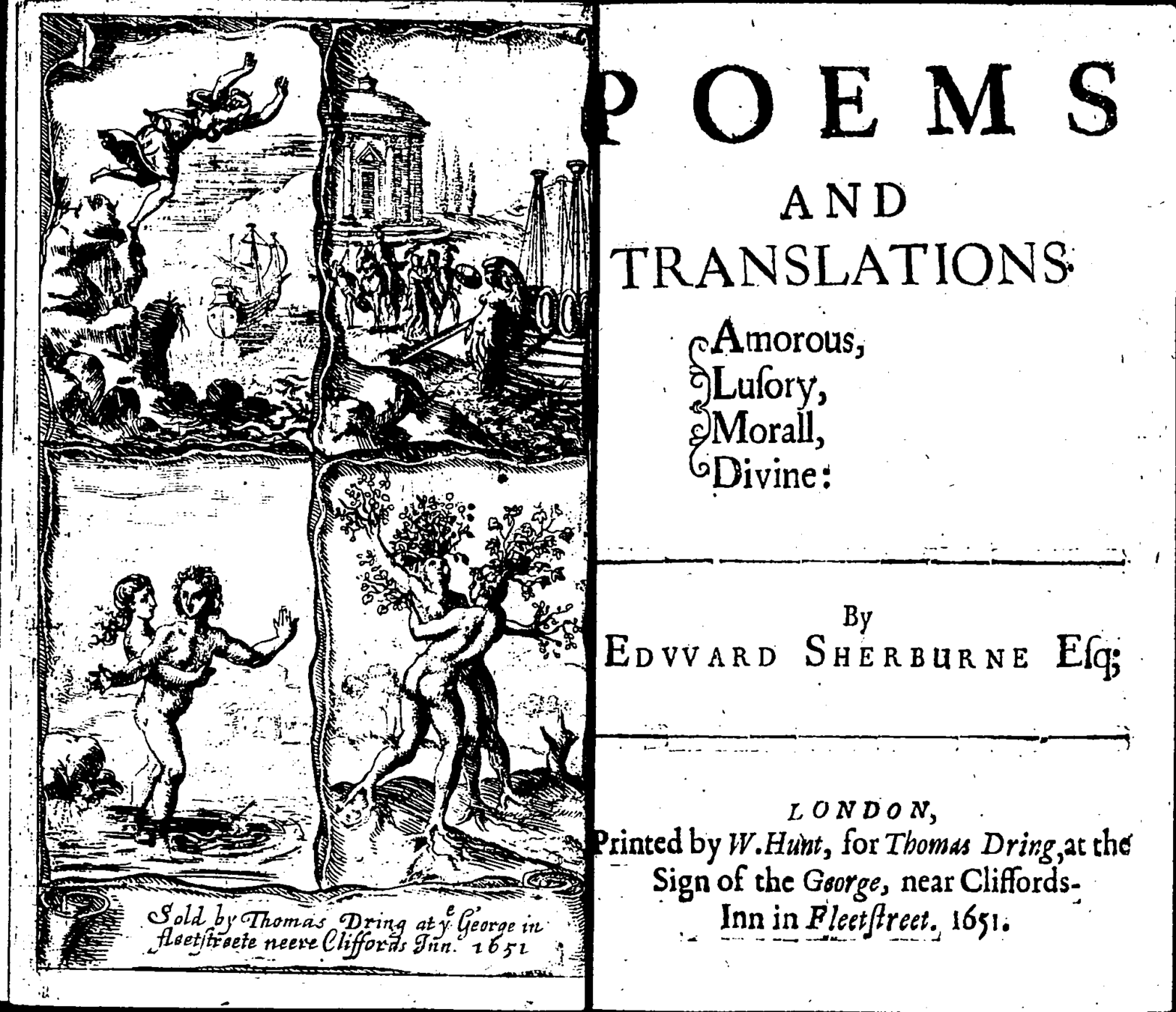
Edward Sherburne
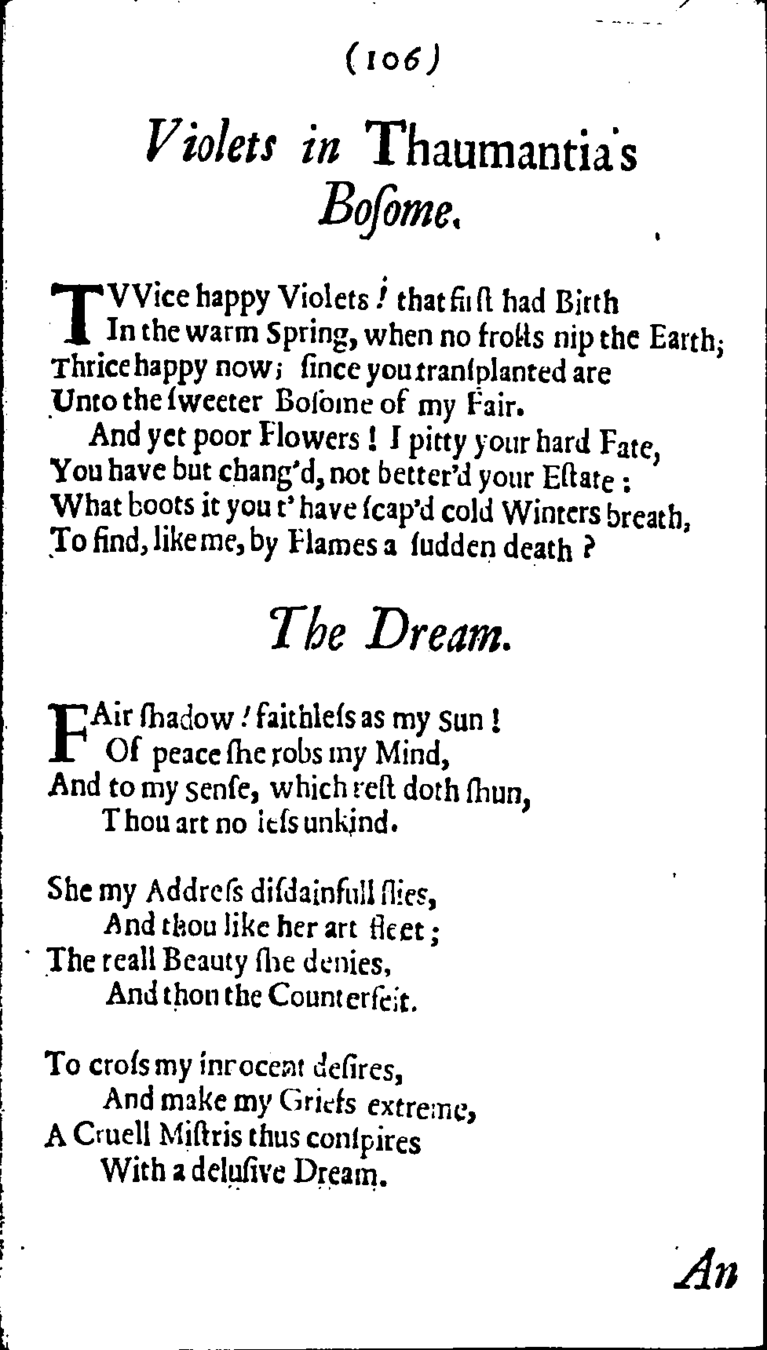
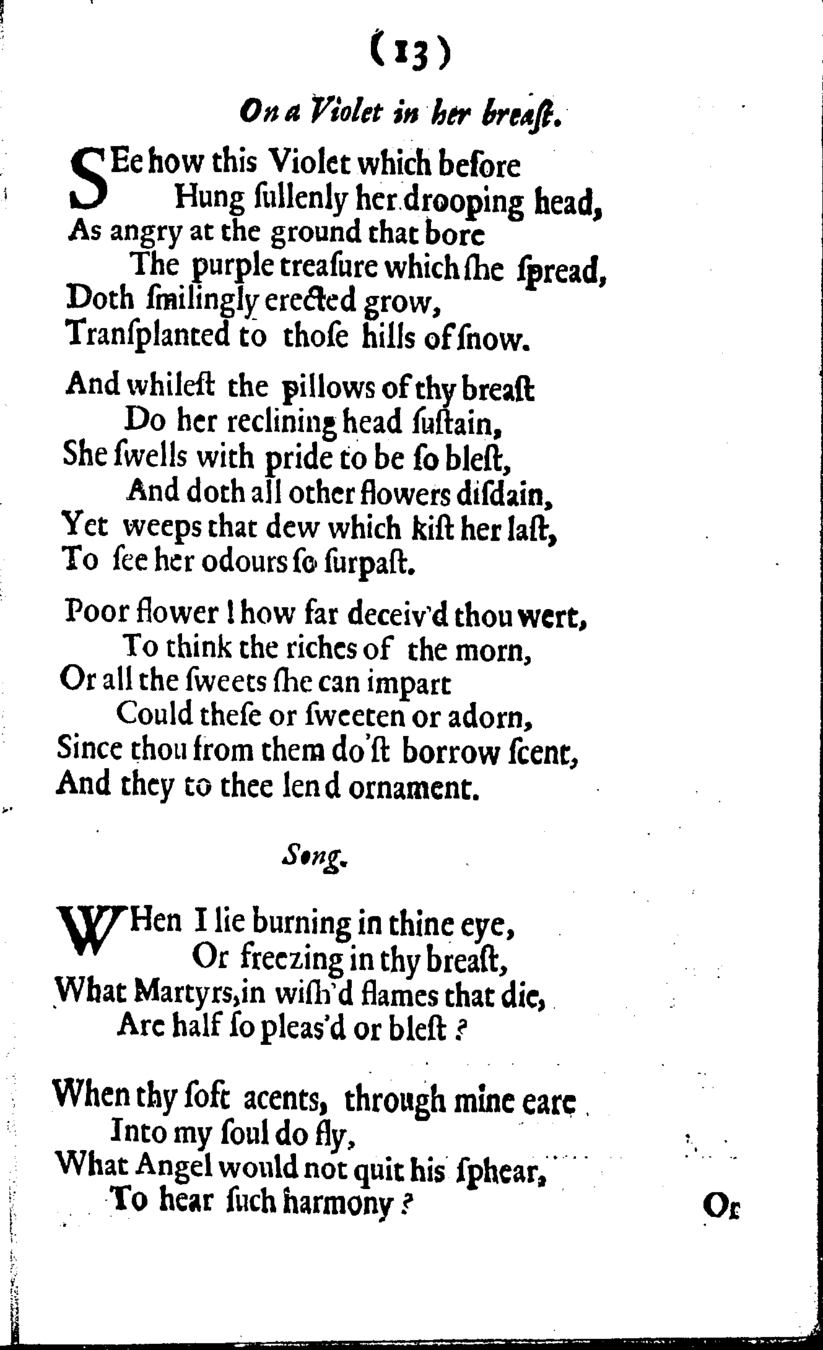
Stanley, 1647
Sherburne, 1651
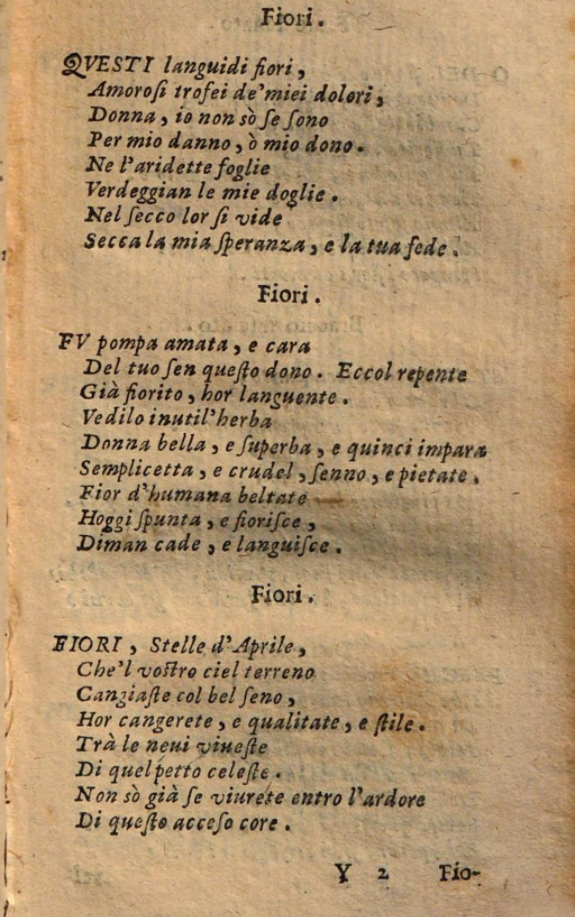
Marino, 1614
Sherburne can hardly be credited with having written original poems at all
Mario Praz, ‘Stanley, Sherburne and Ayres as translators and imitators of Italian, Spanish and French poets’, The Modern Language Review (vol. 20, n.3, Jul. 1925), 280-94: 290
Fanshawe
Richard Fanshawe
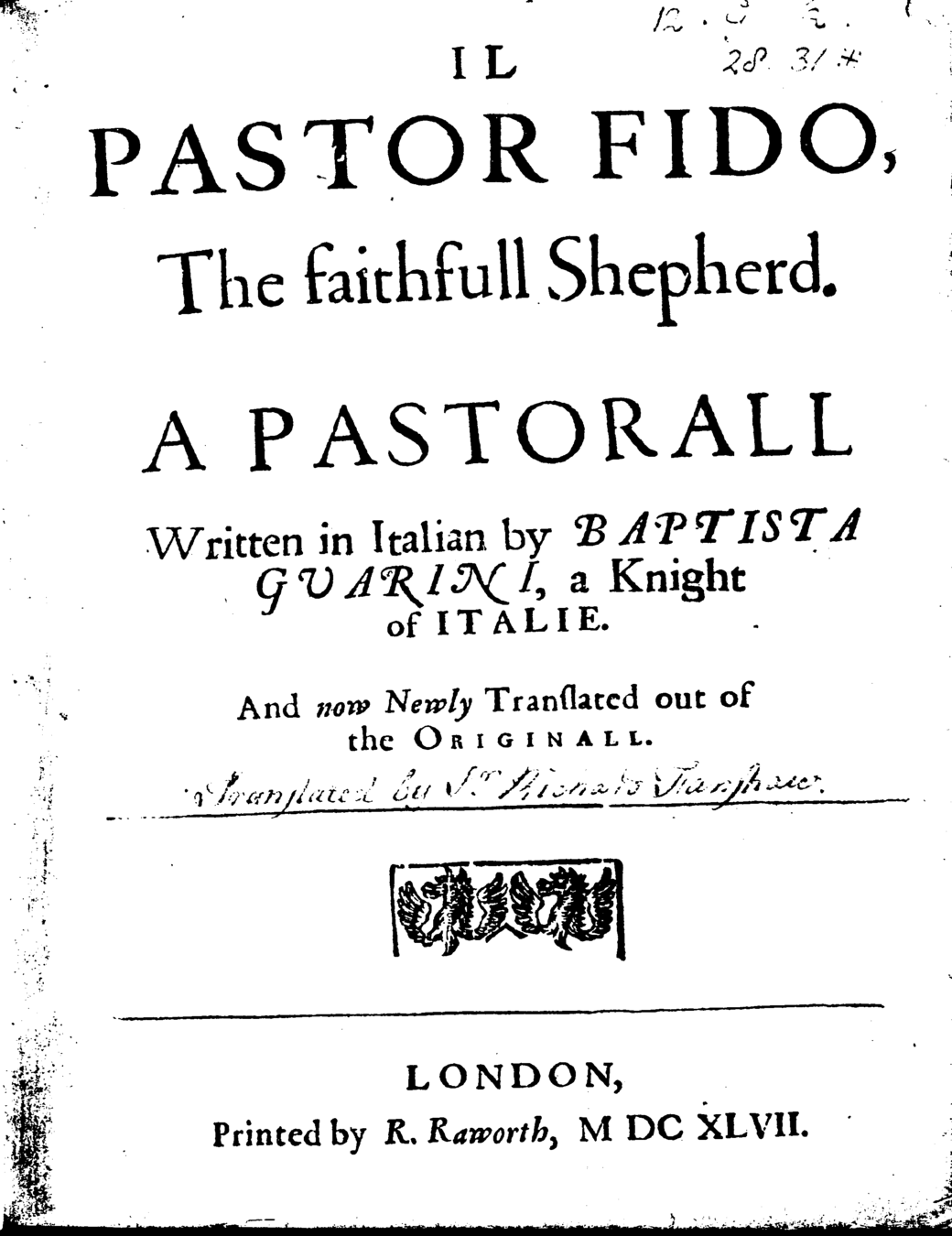
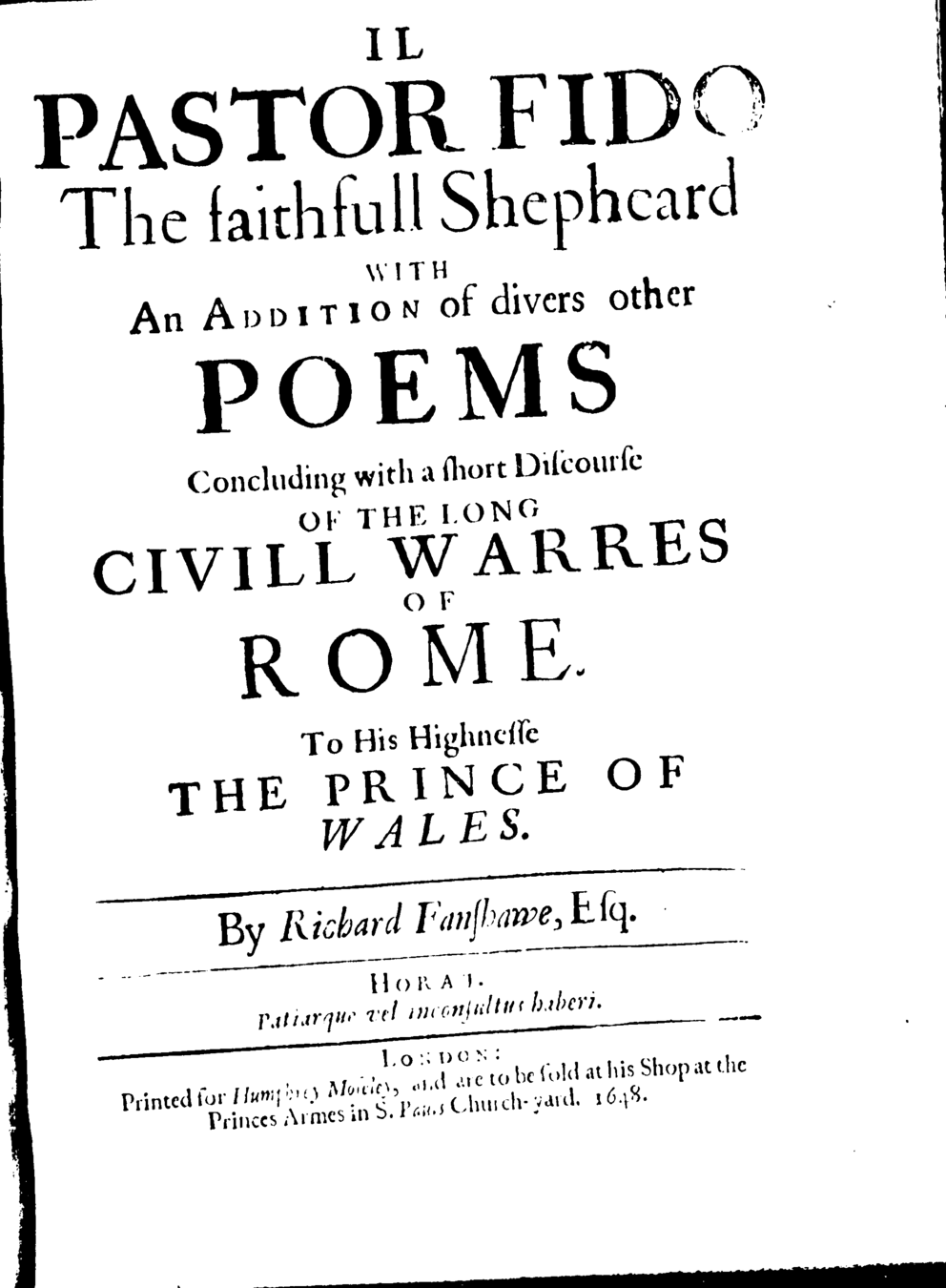
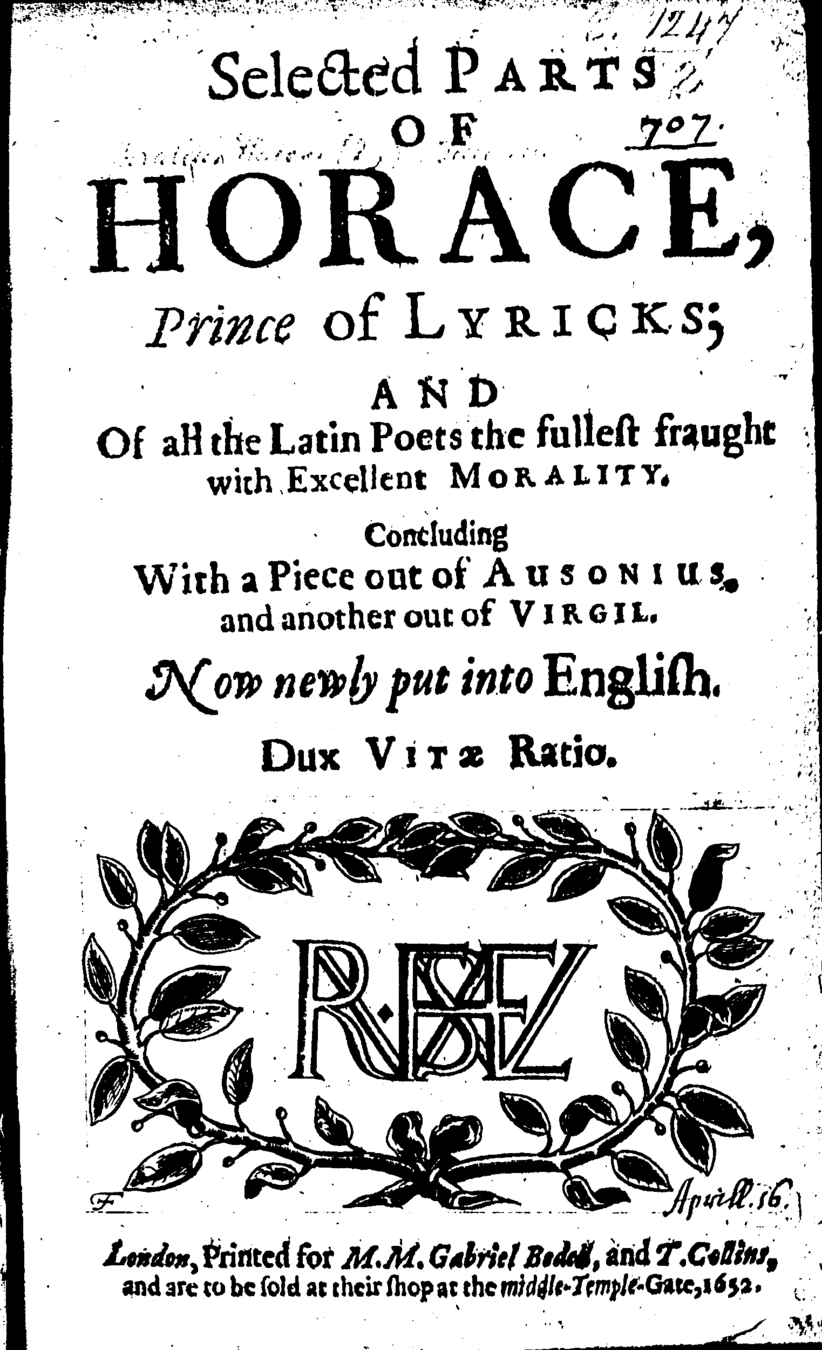
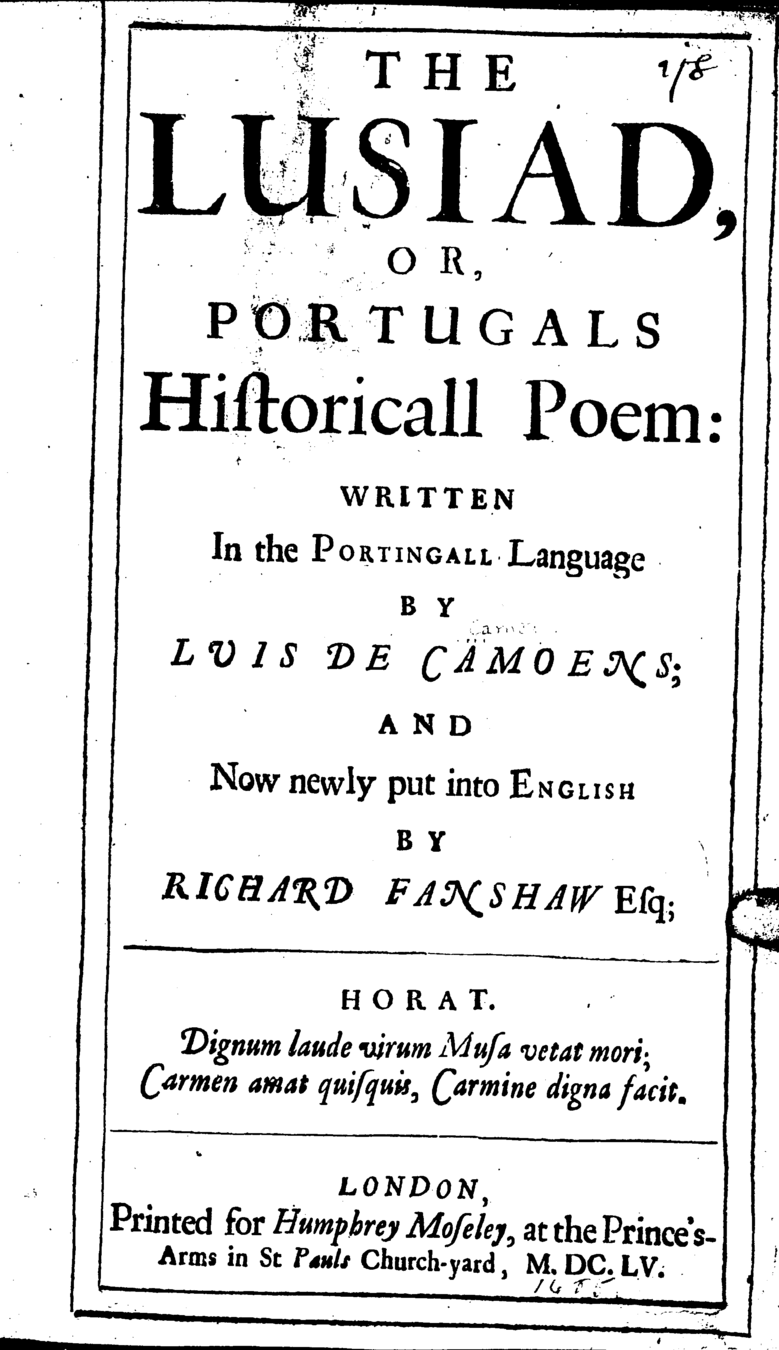
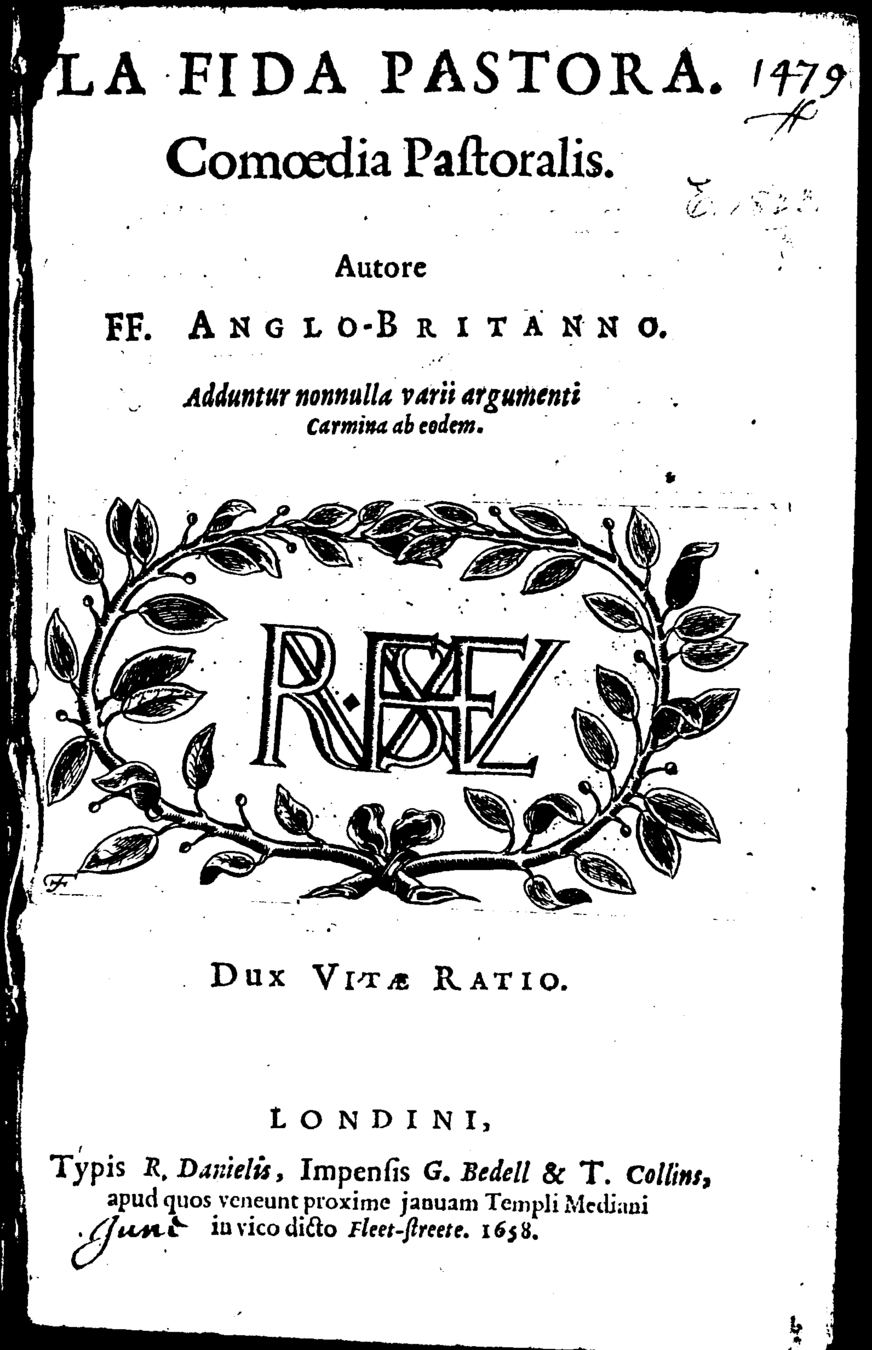
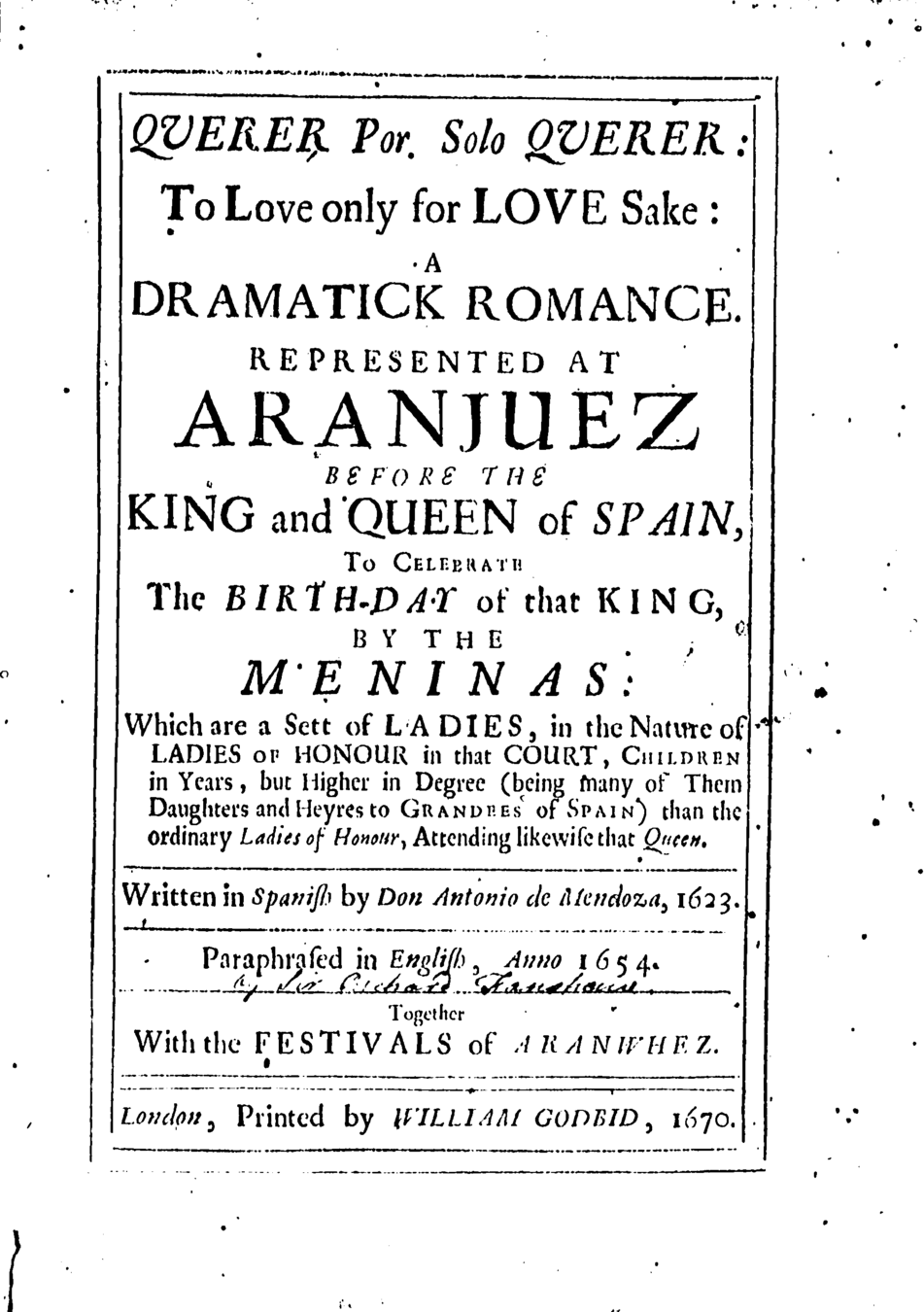
Richard Fanshawe

Richard Fanshawe
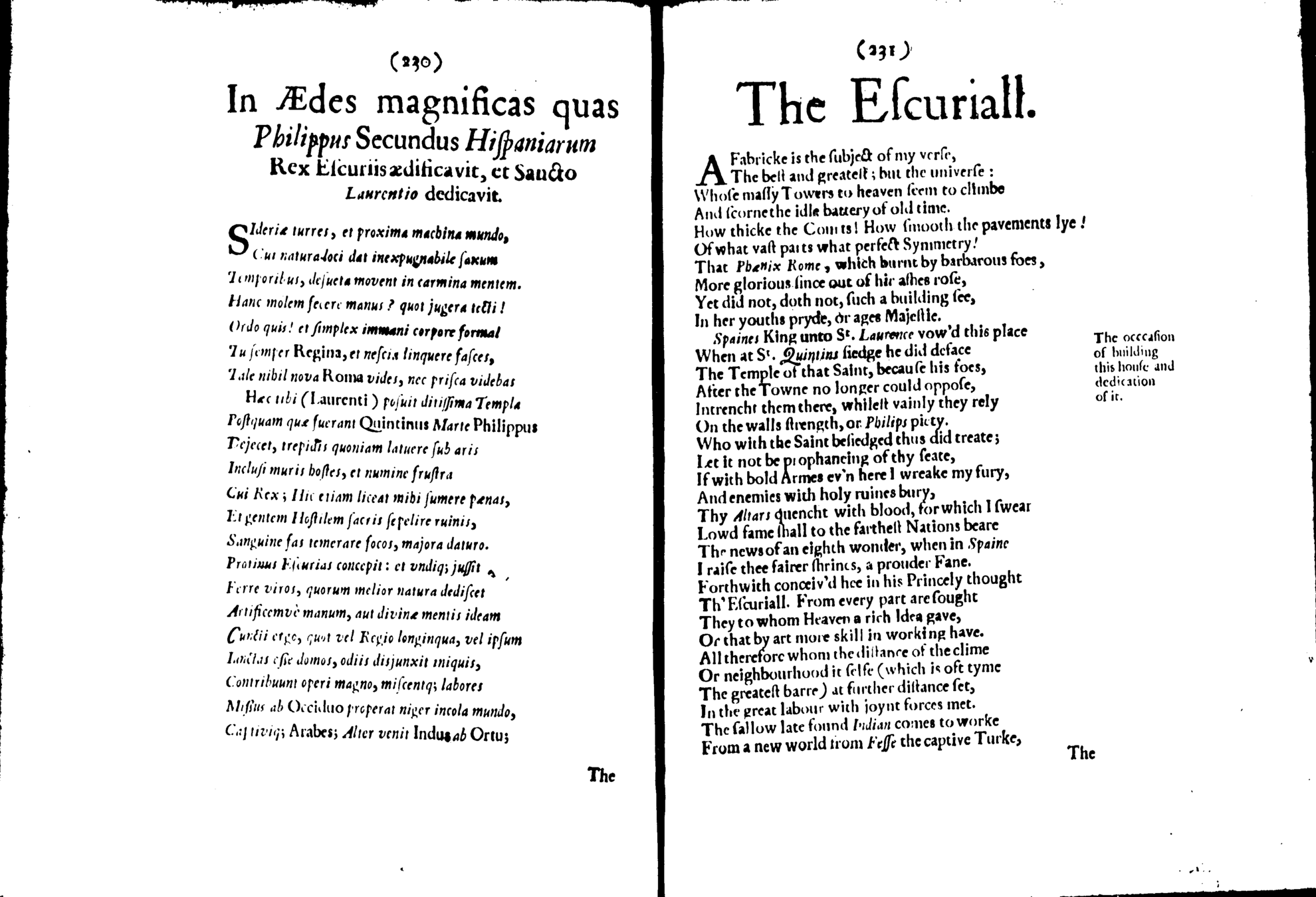
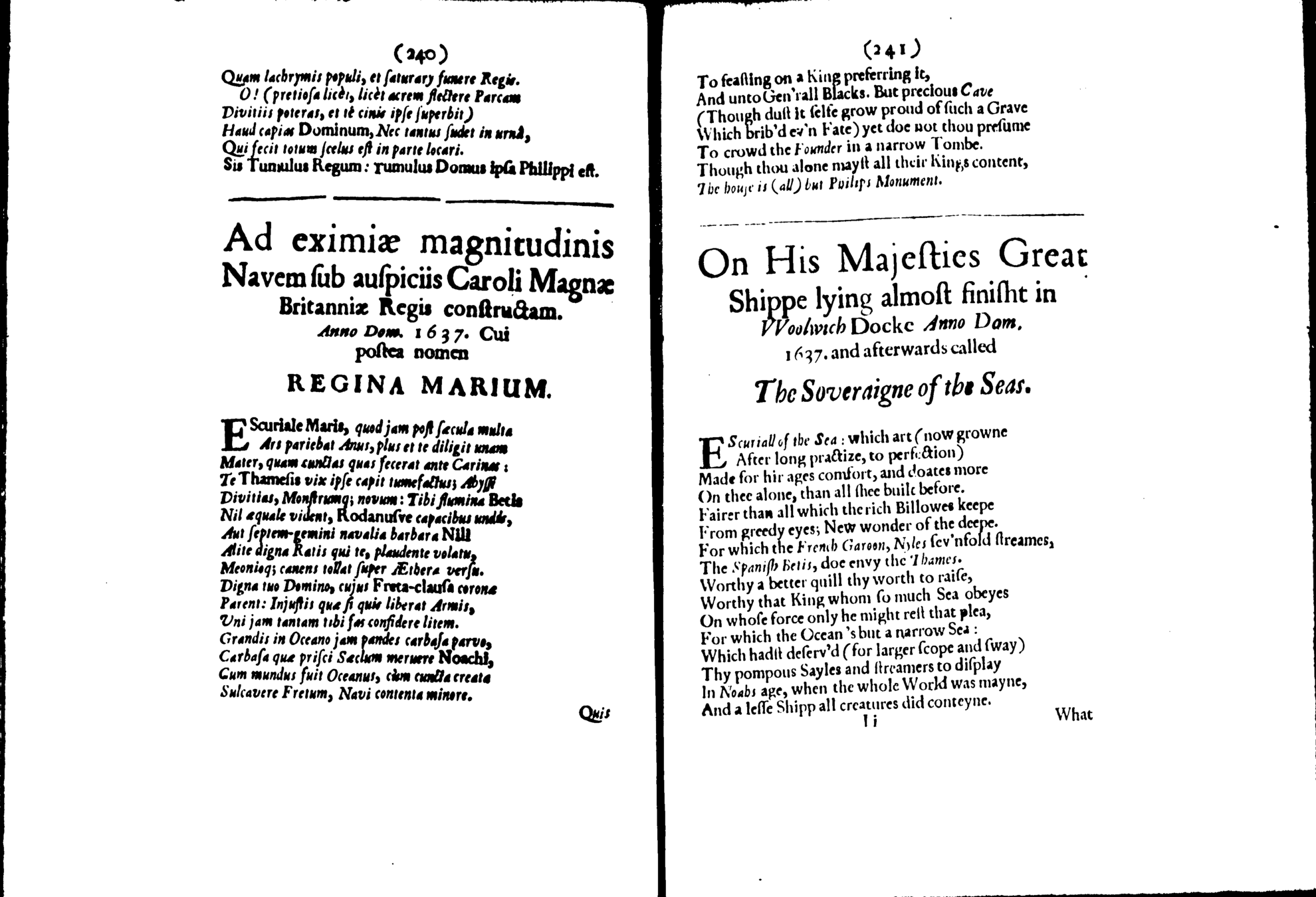
Fanshawe, 'The Escuriall', 1648
Fanshawe,
'On His Majesties Great Shippe', 1648
Richard Fanshawe
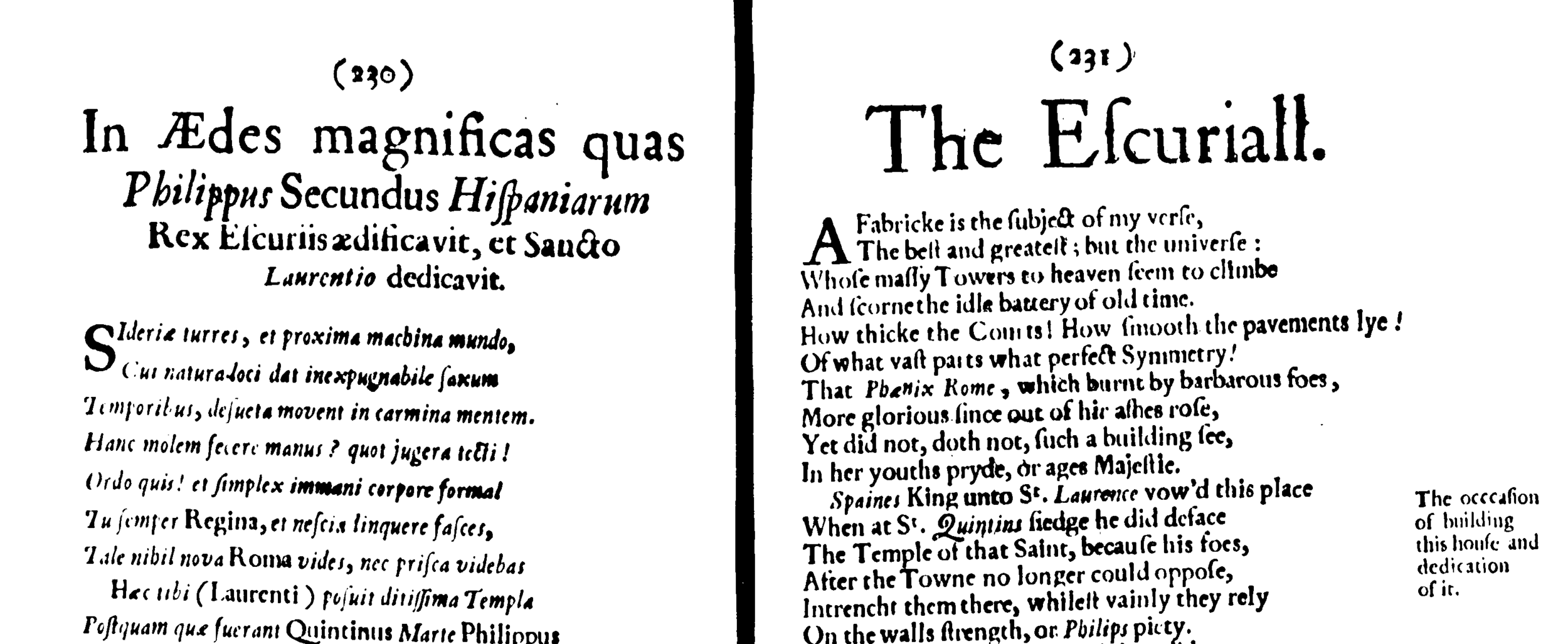
The sumptuous house that King Philip II
of Spain built and dedicated to St. Lawrence,
the Escuriall
≠
Richard Fanshawe



Richard Fanshawe



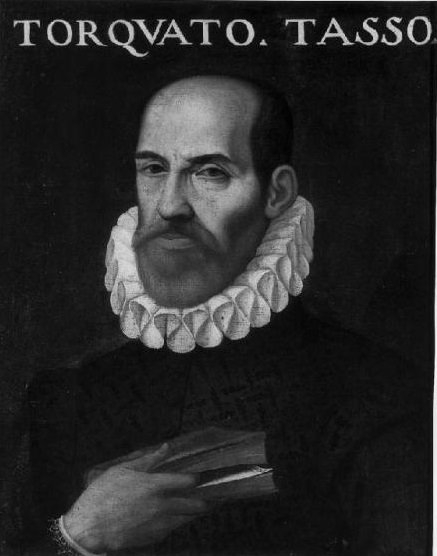



Thomas Stanley
NOT
Edward Sherburne
Richard Fanshawe
tiago.sousa-garcia@newcastle.ac.uk
@tiagosousagarci
Thank you!

‘Translated […] with an addition of divers other poems’. Translation as poetic practice in mid seventeenth-century England
By tiagosousagarcia
‘Translated […] with an addition of divers other poems’. Translation as poetic practice in mid seventeenth-century England
TEEME Conference, May 2018
- 921

